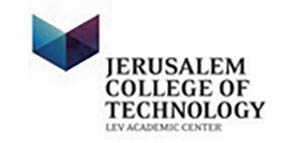
Over the course of the last year, the Jewish people have been tested a great deal, both as individuals and as a nation. While we have many blessings and remarkable achievements, we are rarely without stress, challenges and unpredictability. Our lives can be a rollercoaster with the wanton violence that has claimed so many Israeli victims, the apparent capitulation to Iran’s nuclear weapons aspirations and regional hegemonic goals, global threats of Islamic terrorism, the rise in virulent anti-Semitism, and the spreading BDS campaign. To these are added the all-too numerous challenges and tragedies in our own communities.
As a people of compassion who are commanded to choose life, we instinctively respond to these developments with our hearts and souls. Much of the Jewish family responds and mobilizes to help one another, working together to solve each crisis whether on a global or personal level. We live by the mantra “kol Yisrael arevim” (“all of Israel is responsible for one another”), because our caring and compassion for one another is the key to our survival. Unity has been the one pre-condition for every miracle and great event we experienced throughout history—from Mount Sinai to the rescue of Soviet, Ethiopian, Yemeni, Iraqi and Syrian Jewry.
While this unique sense of areyvut—responsibility to one another, and commitment to achdut (unity) continue to define us, we must come to terms that we are not quite as united as we should be. Countless opportunities are and have been missed due to mistrust of the other or baseless hatred. So many responsibilities were not met because our energies and resources were squandered. The bottom line is that all Jews need to be assured of our support in their times of need, as well as our respect and support at all times.
One way to reverse this trend and promote Jewish unity is through education. In addition to promoting understanding through the acquisition of knowledge, education creates opportunities for those who may not normally have the occasion to associate with one another to do so. Bonds form and Jewish unity grows. Barriers break down as shared aspirations, interests and feelings are identified.
There are Jewish communities here and abroad that lack basic Jewish educational resources. Those of us who have benefited from strong educational opportunities must do everything in our power to ensure that all of our brothers and sisters both see the value of education, and make it a collective priority to provide the highest possible level of educational experiences for every member of their communities.
From our earliest days, universal education was seen as a primary collective responsibility. When communities were organized, the first obligation was a school. But unlike the Greeks and other advanced societies at the time, where education was often restricted to the wealthy, the education of every Jewish youth was seen as a communal obligation.
When we empower individuals who would otherwise have been left on the sidelines by ensuring access to knowledge and opportunities, we are contributing to a process that strengthens our entire people. I joined the board of the American Friends of Jerusalem College of Technology (JCT) years ago for this very reason.
Working with JCT, an institution that provides a framework of educational support and professional training in a Torah-rich environment, allows all those involved to make a difference on the individual, familial and societal levels simultaneously. This sets an example regarding the kind of impact we can all make on the world with the right partners and motivation, guided by our mesorah (heritage). As a leading institution in the field of higher education in Israel, JCT is at the forefront of providing an education to often-ignored segments of the Israeli population, including haredi and Ethiopian Israelis, religious women and others.
By providing them with serious opportunities for personal and academic growth, we are not only shaping their careers but securing the futures of their entire families, and, in turn, enhancing the future of the Jewish people.
I saw this very dramatically in Israel and recently at an event in NYC that showcased hi-tech startups established by haredi men and women. It was exhilarating to hear their personal accounts and the tribute they paid to “secular” Israeli mentors and partners. It is happening much more than is realized and will prove to benefit all of am Yisrael. JCT is the perfect institution to be at the forefront of this important development.
Unfortunately, the roller coaster will continue to roll on. Thankfully, we will continue to come to each other’s aid as an “am echad b’lev echad” (one people with one heart). However, until we view the current lack of educational opportunities for many as a national emergency, and place the resolution of this complex problem among the top priorities, we will continue to be lacking as a nation.
Malcolm Hoenlein is executive vice chairman/CEO of the Conference of Presidents of Major American Jewish Organizations.
By Malcolm Hoenlein













